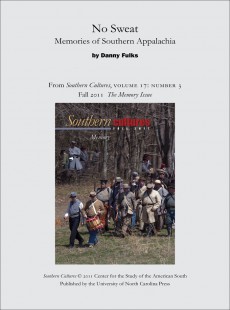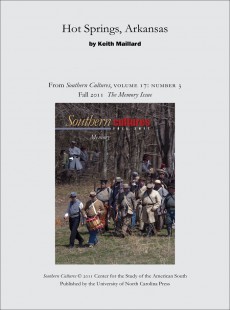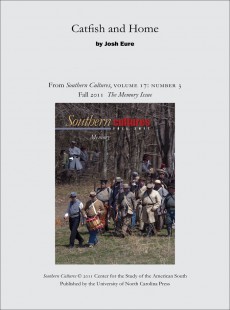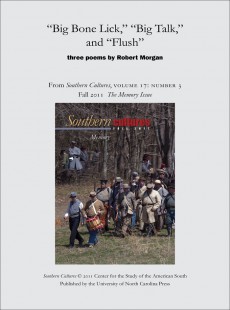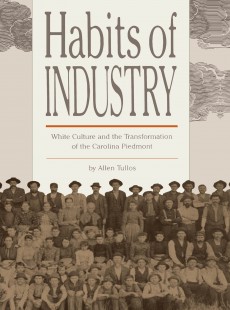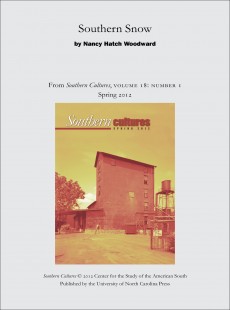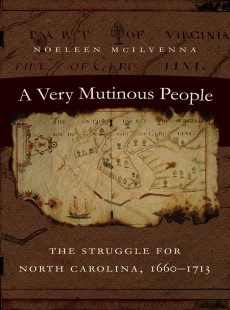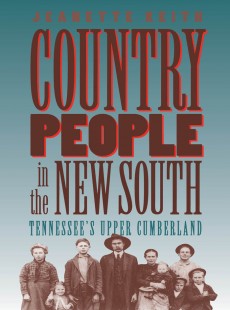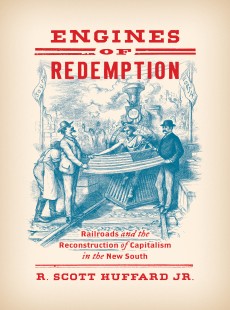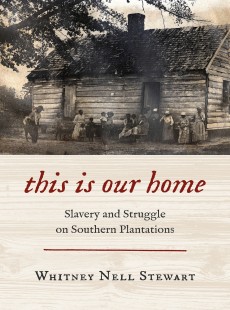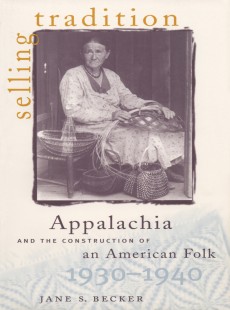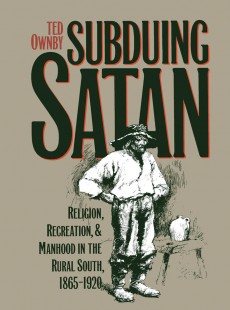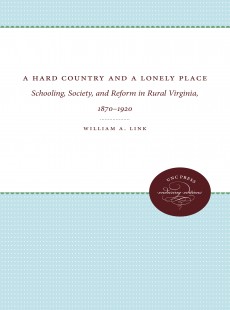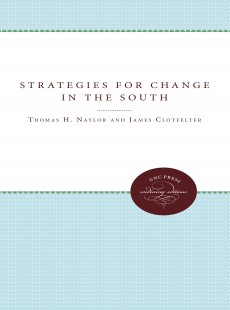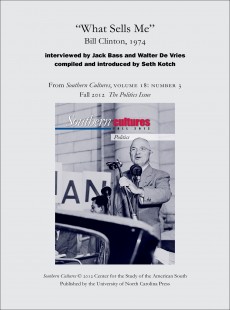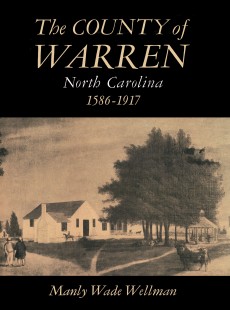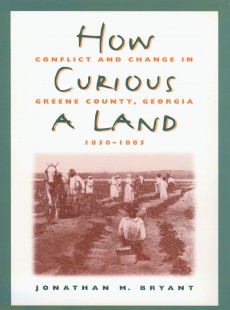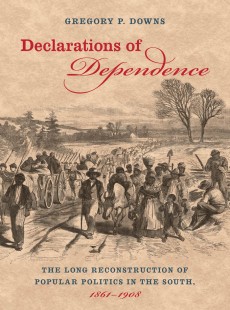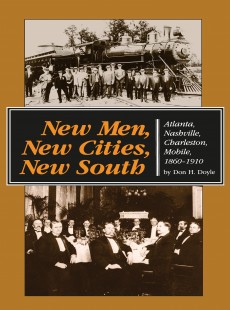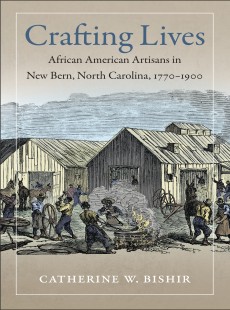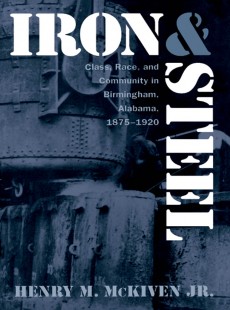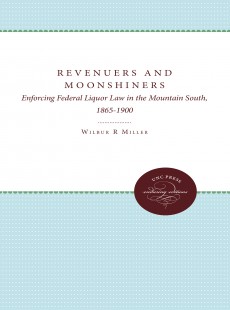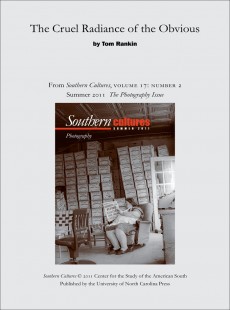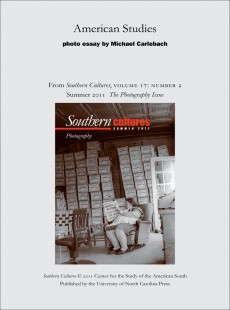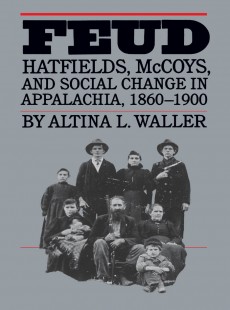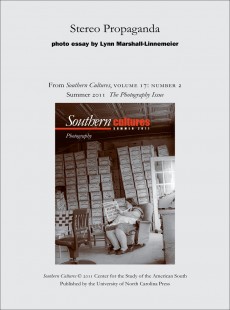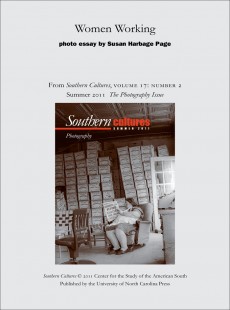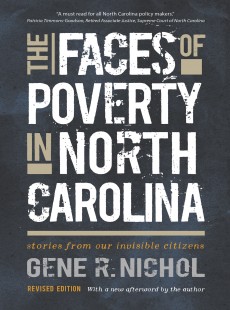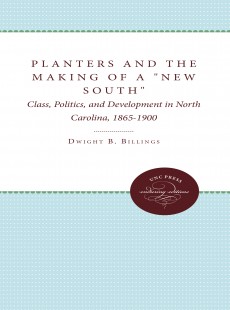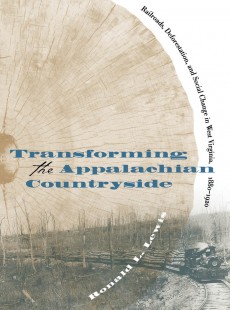
Transforming the Appalachian Countryside
Railroads, Deforestation, and Social Change in West Virginia, 1880-1920
Ronald L. Lewis
 Publisher: University of North Carolina Press
Publisher: University of North Carolina Press
Imprint: The University of North Carolina Press
Published: 11/2000
Pages: 368
Subject: History
| University of North Carolina
Print ISBN: 9.78E+12
eBook ISBN: 9780807862971
DESCRIPTION
Virginia provides an ideal site for studying the broader social impact of deforestation in Appalachia, the South, and the eastern United States.
Most of West Virginia was still dominated by a backcountry economy when the industrial transition began. In short order, however, railroads linked remote mountain settlements directly to
national markets, hauling away forest products and returning with manufactured goods and modern ideas. Workers from the countryside and abroad swelled new mill towns, and merchants ventured into
the mountains to fulfill the needs of the growing population. To protect their massive investments, capitalists increasingly extended control over the state's legal and political systems.
Eventually, though, even ardent supporters of industrialization had reason to contemplate the consequences of unregulated exploitation. Once the timber was gone, the mills closed and the railroads pulled up their tracks, leaving behind an environmental disaster and a new class of marginalized rural poor to confront the worst depression in American history.
RELATED TITLES
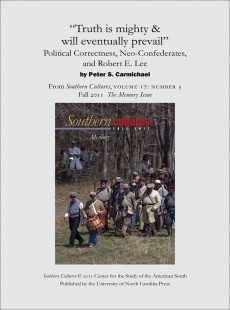
"Truth is mighty & will eventually prevail": Political Correctness, Neo-Confederates, and Robert E. Lee

Browse All University of North Carolina Press Books

"Truth is mighty & will eventually prevail": Political Correctness, Neo-Confederates, and Robert E. Lee

Browse All University of North Carolina Press Books
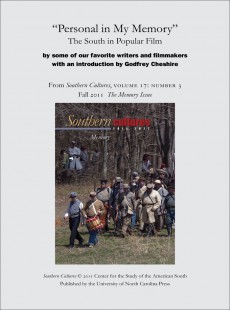
"Personal in My Memory": The South in Popular Film by some of our favorite writers and filmmakers

Browse All University of North Carolina Press Books

"Personal in My Memory": The South in Popular Film by some of our favorite writers and filmmakers

Browse All University of North Carolina Press Books
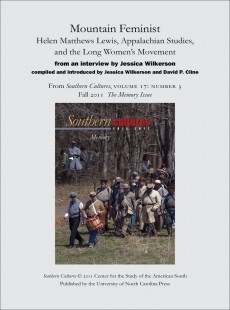
Mountain Feminist: Helen Matthews Lewis, Appalachian Studies, and the Long Women's Movement

Browse All University of North Carolina Press Books

Mountain Feminist: Helen Matthews Lewis, Appalachian Studies, and the Long Women's Movement

Browse All University of North Carolina Press Books
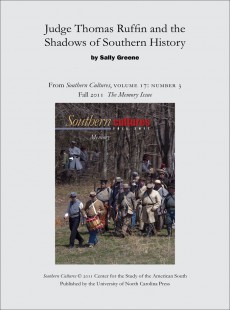
Judge Thomas Ruffin and the Shadows of Southern History

Browse All University of North Carolina Press Books

Judge Thomas Ruffin and the Shadows of Southern History

Browse All University of North Carolina Press Books
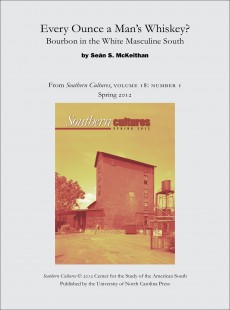
Every Ounce a Man's Whiskey?: Bourbon in the White Masculine South

Browse All University of North Carolina Press Books

Every Ounce a Man's Whiskey?: Bourbon in the White Masculine South

Browse All University of North Carolina Press Books
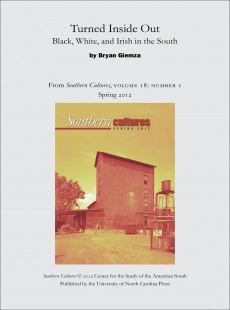
Turned Inside Out: Black, White, and Irish in the South

Browse All University of North Carolina Press Books

Turned Inside Out: Black, White, and Irish in the South

Browse All University of North Carolina Press Books

"God First, You Second, Me Third": An Exploration of "Quiet Jewishness" at Camp Wah-Kon-Dah

Browse All University of North Carolina Press Books

"God First, You Second, Me Third": An Exploration of "Quiet Jewishness" at Camp Wah-Kon-Dah

Browse All University of North Carolina Press Books
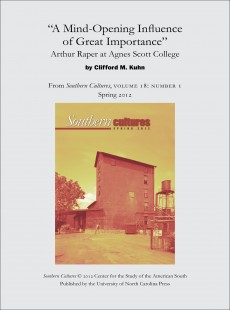
"A Mind-Opening Influence of Great Importance": Arthur Raper at Agnes Scott College

Browse All University of North Carolina Press Books

"A Mind-Opening Influence of Great Importance": Arthur Raper at Agnes Scott College

Browse All University of North Carolina Press Books
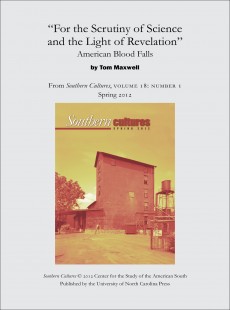
"For the Scrutiny of Science and the Light of Revelation": American Blood Falls

Browse All University of North Carolina Press Books

"For the Scrutiny of Science and the Light of Revelation": American Blood Falls

Browse All University of North Carolina Press Books
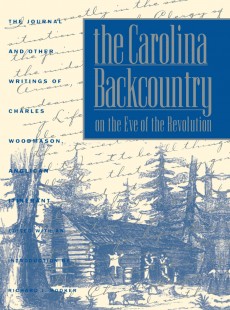
The Carolina Backcountry on the Eve of the Revolution

Browse All University of North Carolina Press Books

The Carolina Backcountry on the Eve of the Revolution

Browse All University of North Carolina Press Books

Frank Porter Graham and the 1950 Senate Race in North Carolina

Browse All University of North Carolina Press Books

Frank Porter Graham and the 1950 Senate Race in North Carolina

Browse All University of North Carolina Press Books

The Freedmen's Bureau in South Carolina, 1865 - 1872

Browse All University of North Carolina Press Books

The Freedmen's Bureau in South Carolina, 1865 - 1872

Browse All University of North Carolina Press Books
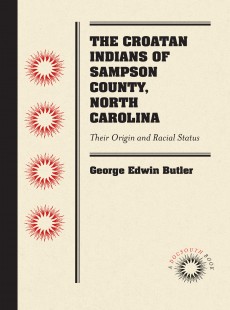
The Croatan Indians of Sampson County, North Carolina

Browse All University of North Carolina Press Books

The Croatan Indians of Sampson County, North Carolina

Browse All University of North Carolina Press Books

Southern Liberal Journalists and the Issue of Race, 1920-1944

Browse All University of North Carolina Press Books

Southern Liberal Journalists and the Issue of Race, 1920-1944

Browse All University of North Carolina Press Books
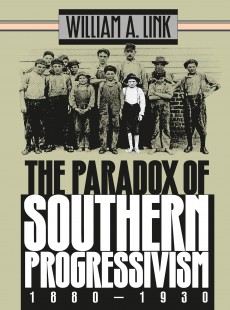
The Paradox of Southern Progressivism, 1880-1930

Browse All University of North Carolina Press Books

The Paradox of Southern Progressivism, 1880-1930

Browse All University of North Carolina Press Books

Wiley Buck and Other Stories of the Concord Community

Browse All University of North Carolina Press Books

Wiley Buck and Other Stories of the Concord Community

Browse All University of North Carolina Press Books
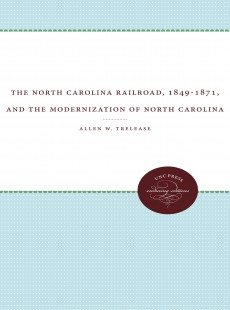
The North Carolina Railroad, 1849-1871, and the Modernization of North Carolina

Browse All University of North Carolina Press Books

The North Carolina Railroad, 1849-1871, and the Modernization of North Carolina

Browse All University of North Carolina Press Books

The South in Red and Purple: Southernized Republicans, Diverse Democrats

Browse All University of North Carolina Press Books

The South in Red and Purple: Southernized Republicans, Diverse Democrats

Browse All University of North Carolina Press Books
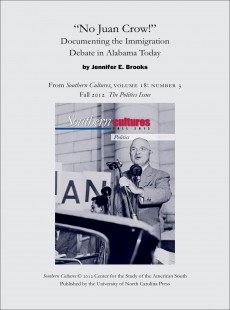
"No Juan Crow!": Documenting the Immigration Debate in Alabama Today

Browse All University of North Carolina Press Books

"No Juan Crow!": Documenting the Immigration Debate in Alabama Today

Browse All University of North Carolina Press Books

"The Issue Is the Control of Public Schools": The Politics of Desegregation in Prince Edward County, Virginia

Browse All University of North Carolina Press Books

"The Issue Is the Control of Public Schools": The Politics of Desegregation in Prince Edward County, Virginia

Browse All University of North Carolina Press Books

The Past, Present, and Future of Southern Politics

Browse All University of North Carolina Press Books

The Past, Present, and Future of Southern Politics

Browse All University of North Carolina Press Books

Secret Sharing: Debutantes Coming Out in the American South

Browse All University of North Carolina Press Books

Secret Sharing: Debutantes Coming Out in the American South

Browse All University of North Carolina Press Books

NASCAR vs. Football: Which Sport Is More Important to the South?

Browse All University of North Carolina Press Books

NASCAR vs. Football: Which Sport Is More Important to the South?

Browse All University of North Carolina Press Books

The Country Store: In Search of Mercantiles and Memories in the Ozarks

Browse All University of North Carolina Press Books

The Country Store: In Search of Mercantiles and Memories in the Ozarks

Browse All University of North Carolina Press Books

"That Ain't Your Name": An Engaged Identity and Other Gifts from a Dysfunctional Southern Family

Browse All University of North Carolina Press Books

"That Ain't Your Name": An Engaged Identity and Other Gifts from a Dysfunctional Southern Family

Browse All University of North Carolina Press Books
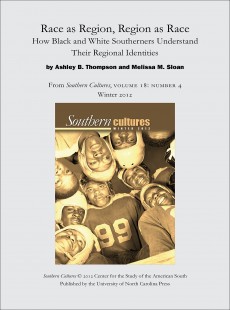
Race as Region, Region as Race: How Black and White Southerners Understand Their Regional Identities

Browse All University of North Carolina Press Books

Race as Region, Region as Race: How Black and White Southerners Understand Their Regional Identities

Browse All University of North Carolina Press Books

Southern Cultures: 2013 Global Southern Music Issue, Enhanced Ebook

Browse All University of North Carolina Press Books

Southern Cultures: 2013 Global Southern Music Issue, Enhanced Ebook

Browse All University of North Carolina Press Books

Southern Cultures: Remembering the Civil War Issue

Browse All University of North Carolina Press Books

Southern Cultures: Remembering the Civil War Issue

Browse All University of North Carolina Press Books

Mapping The Democratic Forest: The Postsouthern Spaces of William Eggleston

Browse All University of North Carolina Press Books

Mapping The Democratic Forest: The Postsouthern Spaces of William Eggleston

Browse All University of North Carolina Press Books

"Those little color snapshots": William Christenberry

Browse All University of North Carolina Press Books

"Those little color snapshots": William Christenberry

Browse All University of North Carolina Press Books

Heroes of Hell Hole Swamp: Photographs of South Carolina Midwives by Hansel Mieth and W. Eugene Smith

Browse All University of North Carolina Press Books

Heroes of Hell Hole Swamp: Photographs of South Carolina Midwives by Hansel Mieth and W. Eugene Smith

Browse All University of North Carolina Press Books
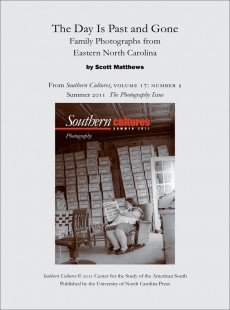
The Day Is Past and Gone: Family Photographs from Eastern North Carolina

Browse All University of North Carolina Press Books

The Day Is Past and Gone: Family Photographs from Eastern North Carolina

Browse All University of North Carolina Press Books






